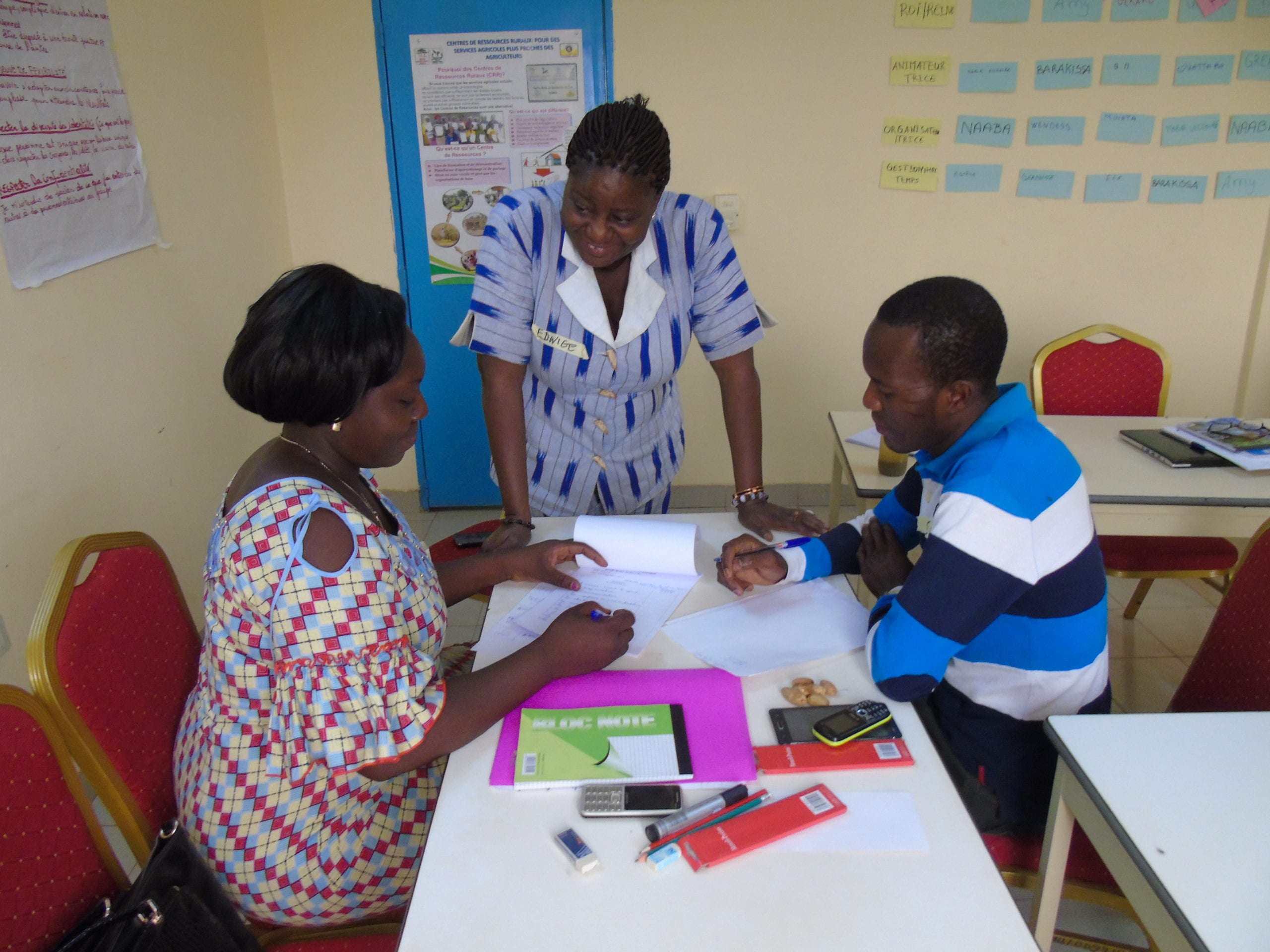Plusieurs projets ont été développés à partir de Tylay
Partnership for improving the performance of family farms
Objectif général
Contribute to improving the socio-economic and ecological performance of family farms with a view to :
- l’amélioration de la couverture des besoins alimentaires et monétaires des ménages en milieu agricole,
- l’augmentation de l’adoption de techniques et pratiques respectueuses de l’environnement,
- l’amélioration de l’équité homme-femme dans la gestion des ressources du ménage
Specific objectives
- Améliorer l’efficacité des dispositifs de conseils et de formation des organisations professionnelles agricoles,
- Développer des compétences endogènes capables d’accompagner l’exploitation familiale à accroître ses rendements et ses revenus
- Améliorer l’équité (homme-femme) dans la gestion des ressources des exploitations familiales et stimuler les initiatives des femmes
- Adapter l’approche Tylay aux spécificités des exploitations agricoles en situation de subsistance dans des milieux faiblement structurés
Bénéficiaires directs :
Exploitation familiales, organisations de producteurs/trices , services techniques du développement rural
Financement :
Swiss Cooperation
Partenaires de mise en œuvre :
- Training Space, Training of Spaces (EFFE), methodological support partner
- Sissili Provincial Federation of Agricultural Professionals (FEPPASI)
- Association of Private Irrigation Professionals (APIPAC)
- Optima Conseil Services (OCS)
- 2 Bulkiemdé districts: Pella and Soaw
- ATY Association
Zone de couverture :
Sissili, Namentenga, Boulkiemdé, Yatenga, Houet, Kourwéogo
Période d’exécution :
2008-2011
Quelques résultats :
Results in figures :
- 36 training workshops, including 18 transfer workshops.
- 460 people trained in the approach, including 170 women (37%): producers, processors, input distributors, endogenous agricultural advisors, technical service agents, elected representatives of POs and communes, PO employees.
- 32 endogenous facilitators, including 11 women (30%)
- 2 trainers of trainers trained
Effects
- Change in personal life :
- Increased self-confidence
- Elimination/reduction of certain addictions (tobacco, alcohol, violence, etc.)
- Development of personal projects and community initiatives.
- Improved communication within the family, professional circles and associations;
- Enrolment in literacy and vocational training centers.
- Improving the performance of family farms:
- Practice of planning
- Reasoned choice of crops
- Enhancement of existing technical innovations
- Increased production/productivity
- Improved cohesion within families :
- Establishment of dialogue within families for the running of the farm and the management of resources, with the corollary of greater valuing of human resources.
- Involvement of women in decision-making
- Improved household living conditions :
- Better distribution of farm income within families
- More investment of production and income in family projects.
- Improved management of natural resources :
- Development of soil conservation practices (use of organic fertilizers, CES DRS)
- Preservation of natural resources (trees on farms, reduction of chemical pesticides, etc.).
- At institutional level :
- Producer organizations and technical agricultural services have improved their approaches to agricultural advice and support for rural entrepreneurship: involving stakeholders, taking their needs into account and making the most of their skills.
- Rural communes have incorporated training funding into their budgets.
- Improved climate in municipal councils.
Tylay training for stakeholders in the Regional Education and Training Program for Pastoral Populations in cross-border areas (PREPP)
Objectif général
Contribuer à une meilleure intégration sociale, politique et économique des populations pastorales transhumantes des zones transfrontalières par l’éducation et la formation professionnelle.
Specific objectives
- Aider les jeunes pasteurs à clarifier leurs perspectives professionnelles ;
- Identifier les formations spécifiques nécessaires
- Valoriser leurs compétences pour se réaliser.
Bénéficiaires directs
Eleveurs transhumants, éleveurs agriculteurs, des commerçants de bétails ou de produits vétérinaires, des transformatrices
Partenaires de mise en œuvre
Potal Men, Andal et Pinal, L’Association pour la Promotion de l’Elevage au Sahel et en Savane (APESS), Kawran
Financement :
Swiss Cooperation
Zone de couverture
Région Nord du Bénin, Région Est du Burkina
Période d’exécution :
2014-2016
Quelques résultats
- Adaptation de la démarche au public des pasteurs (outil de diagnostic, critères de sélection des participants, traduction etc)
- 16 facilitateurs formés
- 105 personnes dont 88 hommes et 17 femmes lors des 9 ateliers de transfert qui se sont déroulés dans 6 sites au Bénin et 3 au Burkina.

Comments are closed